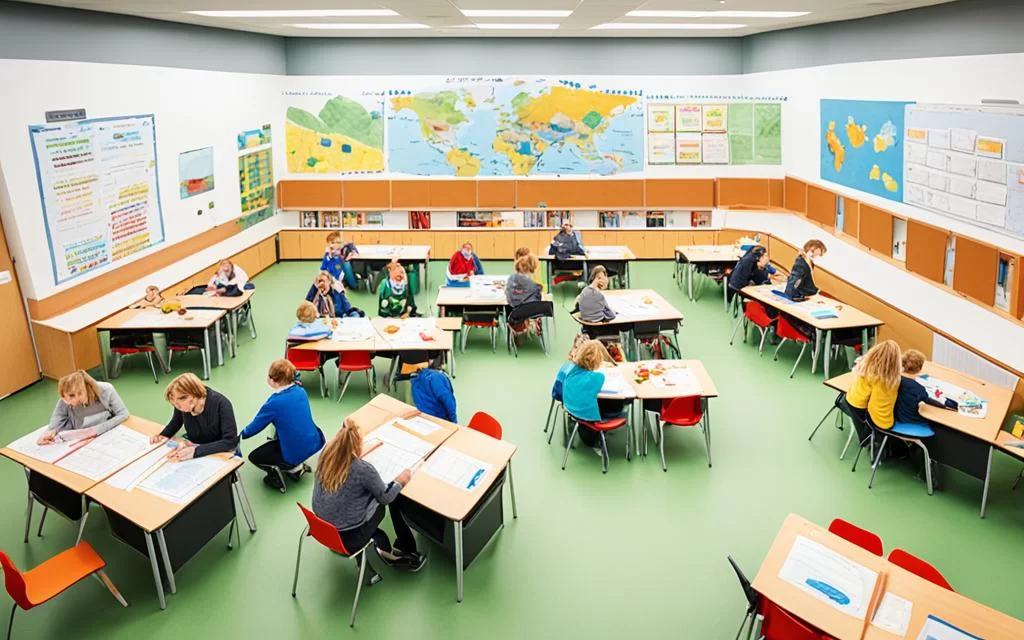Germany is renowned for its robust education system, which emphasizes quality, accessibility, and diversity. As a country that welcomes many expatriates, it offers various educational opportunities for both expats and locals. This article explores the German education system, highlighting its key features and the opportunities available for families and individuals.
Overview of the German Education System
The German education system is structured into several stages, catering to different age groups and educational needs. It is predominantly public, with the government providing funding to ensure accessibility for all.
Early Childhood Education
Education in Germany typically begins with Kindergarten, which is available for children aged three to six. While attendance is not mandatory, many families choose to enroll their children in these programs to foster social skills and early learning. Kindergartens focus on play-based learning, preparing children for the more formal education system.
Primary Education
At age six, children enter Grundschule (primary school), which lasts for four years (six years in some states). The curriculum includes subjects such as mathematics, German, science, and arts, focusing on holistic development. After completing Grundschule, students transition to secondary education based on their academic performance and teacher recommendations.
Secondary Education
Germany’s secondary education is divided into three main types of schools:
- Hauptschule: Provides a more practical education for students aiming for vocational training. It typically lasts until grade 9 or 10.
- Realschule: Offers a more comprehensive curriculum, leading to a secondary school diploma (Realschulabschluss) at the end of grade 10. This path allows students to enter vocational training or pursue higher education.
- Gymnasium: Designed for academically inclined students, Gymnasium lasts until grade 12 or 13 and culminates in the Abitur, the qualification for university admission.
Higher Education Opportunities
Germany is home to numerous world-renowned universities and institutions of higher education, offering a wide array of programs for local and international students. The country is particularly famous for its emphasis on research and practical training.
Public Universities
Most public universities in Germany are tuition-free or charge minimal fees, making higher education accessible to many. Programs are offered in both German and English, catering to international students. The emphasis on research and innovation is evident, with many universities collaborating closely with industry partners.
Vocational Training
In addition to traditional university paths, Germany is known for its strong vocational education system. The Dual Education System combines classroom instruction with hands-on training in a workplace setting. This model allows students to gain practical experience while earning a qualification recognized throughout Europe. Vocational training is an excellent option for expats and locals seeking direct entry into the workforce.
Opportunities for Expats
Expats moving to Germany have access to various educational opportunities for themselves and their children. Many international schools offer curriculums that cater to different nationalities, providing a familiar environment for students transitioning to a new country. These schools often teach in English and follow international education standards, making it easier for expat families to adapt.
Language Integration Programs
For expatriates looking to learn the language, many local institutions offer German language courses tailored to different proficiency levels. Mastering the language can significantly enhance the experience of living in Germany and improve job prospects.
Community Resources
Expat communities in Germany are vibrant and active, often organizing events and workshops related to education, culture, and networking. These resources can help expats navigate the educational landscape and connect with others facing similar challenges.
Germany’s education system provides a wealth of opportunities for both expats and locals, emphasizing quality and accessibility at every stage. From early childhood education to vocational training and higher education, the system is designed to meet the diverse needs of its population. For expats, the availability of international schools and language programs eases the transition into this new environment. Embracing the educational opportunities in Germany can lead to personal and professional growth, making it a rewarding experience for all.
